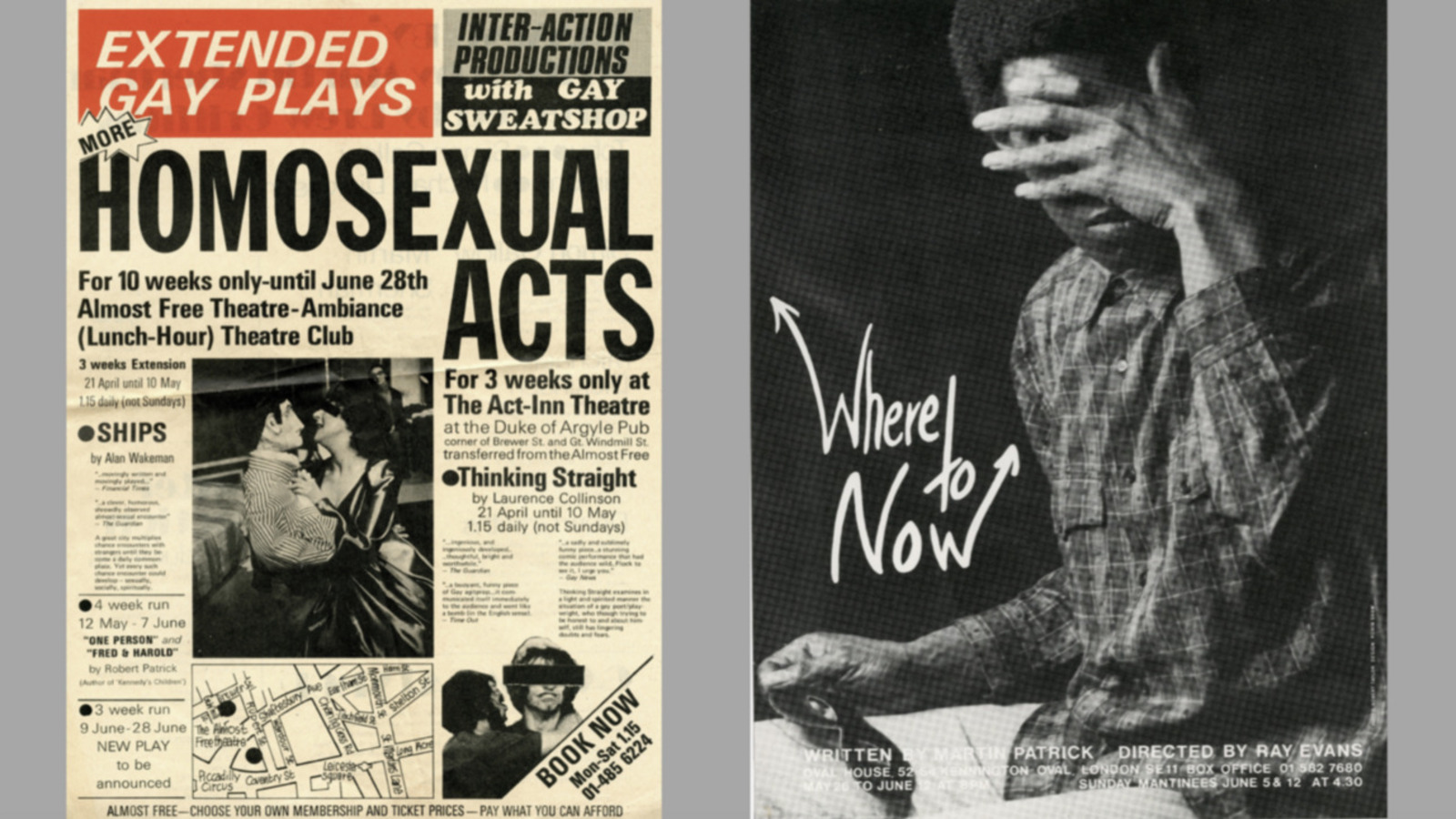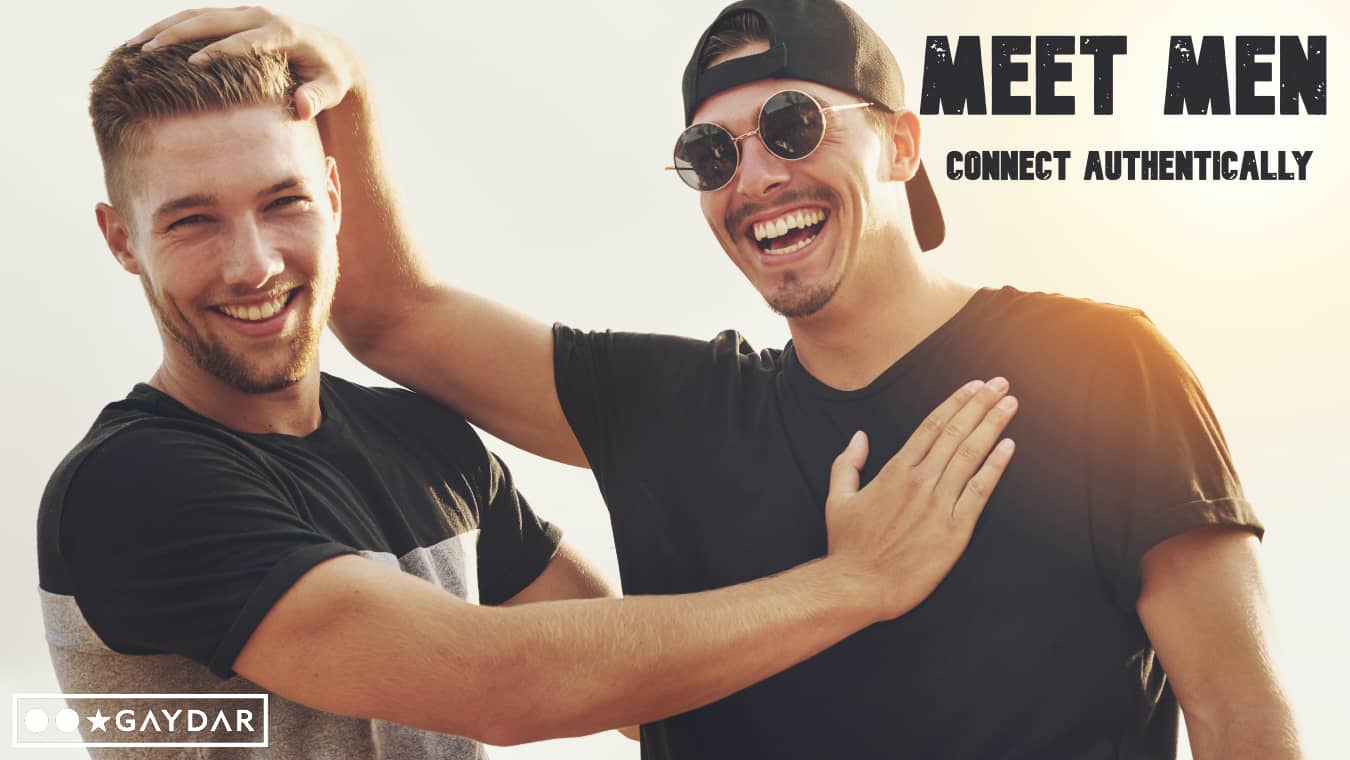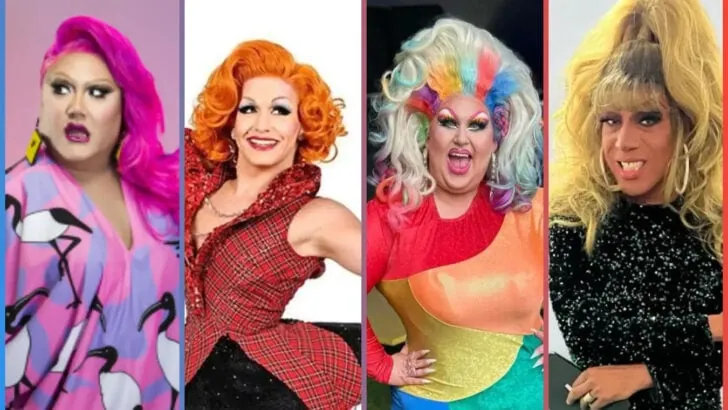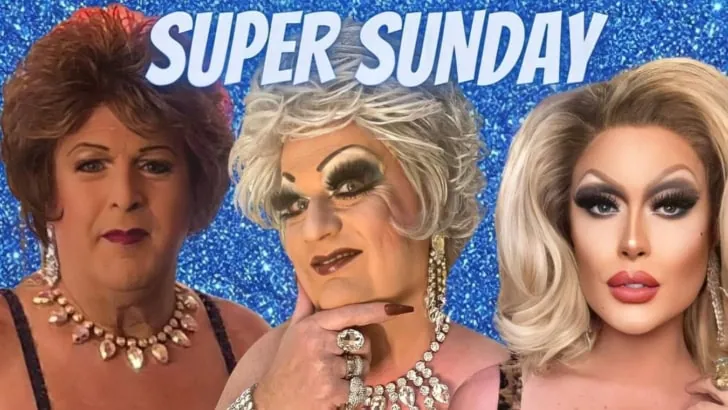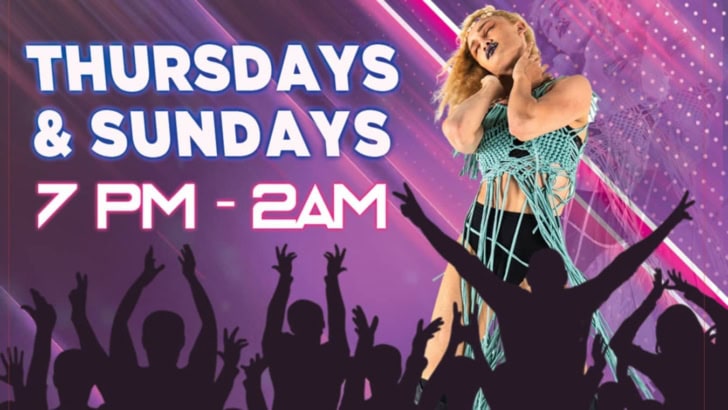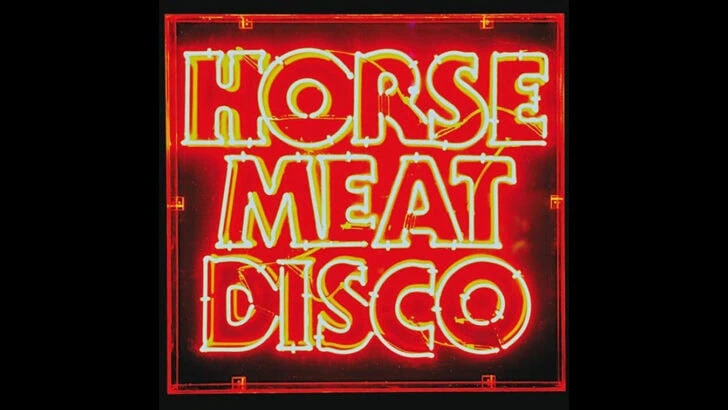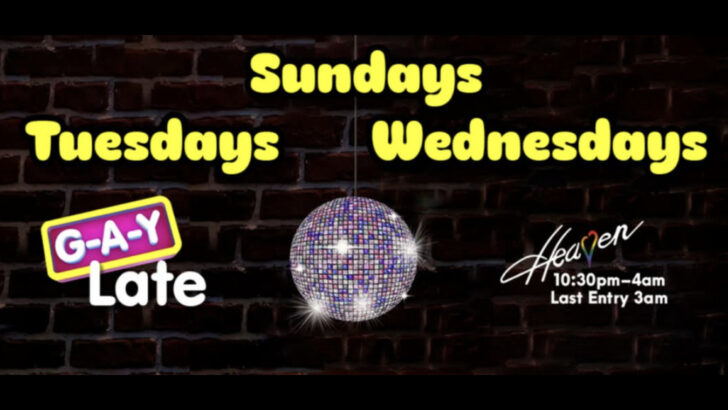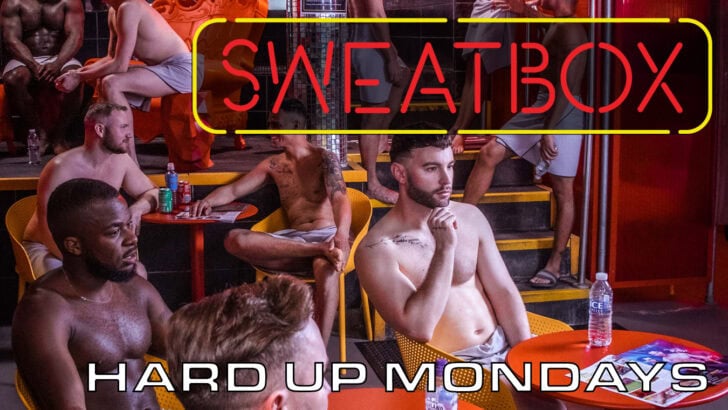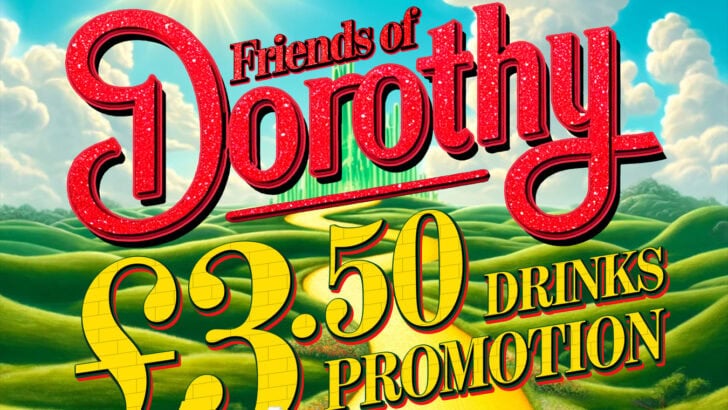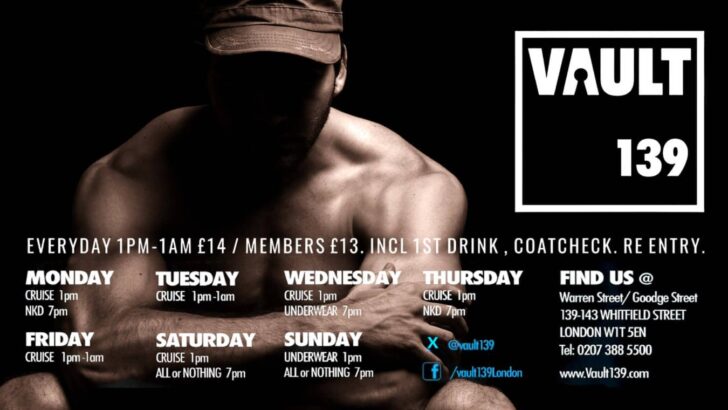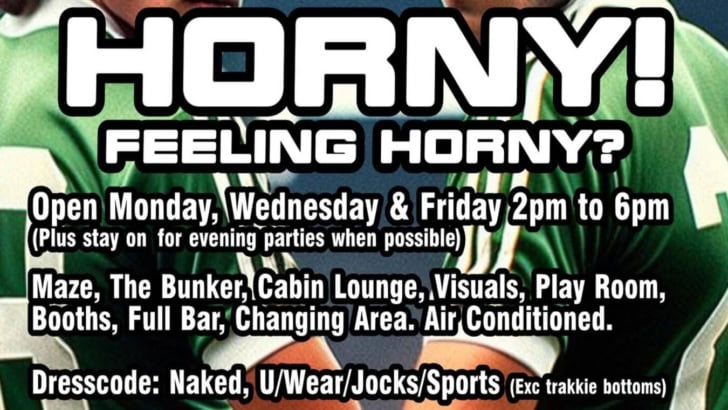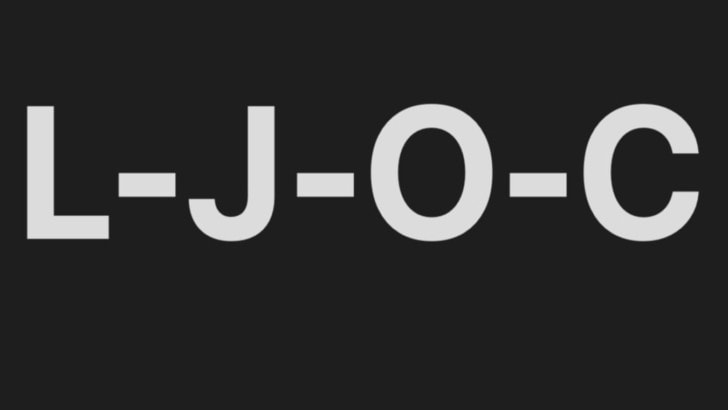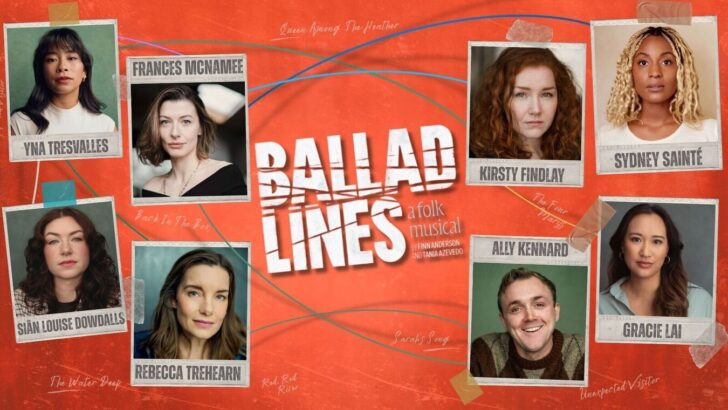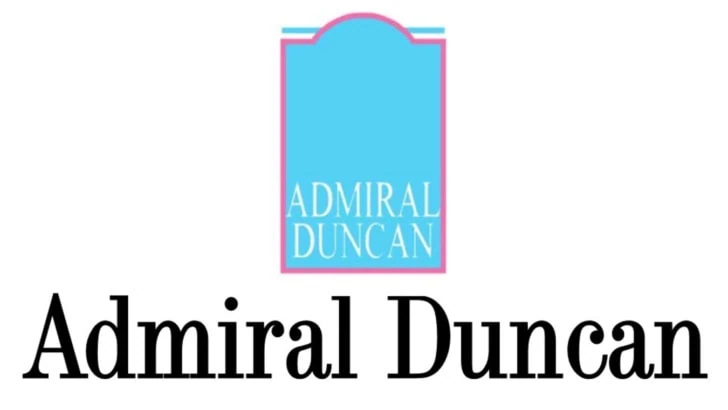Joelle Taylor’s powerful, intimate, 2021 T.S. Eliot prize-winning book C+nto and Othered Poems opens with a preface that reads:
‘This is a book of silences. C+nto opens in a time of absence. Glass display cases appear across the UK outside the old bars, cruising grounds and squats that once held the LGBT+ community in parenthesis’ The book opens with a set of ‘Vitrines’ where Taylor displays the culture of then, reciting: ‘Hackney, Vauxhall, Brixton, Herne Hill, Clapham, Hampstead Heath’ in a haunting incantation.
The vitrines in the exhibition Radical Rediscovery: Homosexual Acts and Beyond are actual ones, exhibition cases that are containers for artefacts that also memorialise a rich, lost radical culture, that of the LG…, and later also BTQ+, theatre of the 1970s ’80s and ’90s, in a year which marks the 50th anniversary of a key moment in that history.
1975 saw Britain’s first Gay Theatre Festival. Hosted by Inter-Action at the Almost-Free Theatre in Soho, it started with productions of 5 plays, all by white men, most of them American. But such was its success that, with queues around the block, it was twice extended, more plays were added, it moved to a local pub theatre and then to the ICA. The producing company, Gay Sweatshop, went on in 1976 to stage Mister X by Drew Griffiths and Roger Baker, inspired by the pamphlet With Downcast Gays, which addressed gay internalised self-oppression, while a newly formed women’s company put on Any Woman Can by Jill Posener. Singly or together, the two Sweatshop companies toured across the country through 1976, and according to company member Julie Parker ‘the local right-wing would come out and picket and threaten, and there’d be all the letters in the papers …. and then, there’d be all of the women, and where the men were concerned, the men, who would come up to you and talk to you afterwards and who were in tears at the show and said, ‘That’s me, that’s my story, that’s my life,’ and ‘I’ve never met people like you before.’
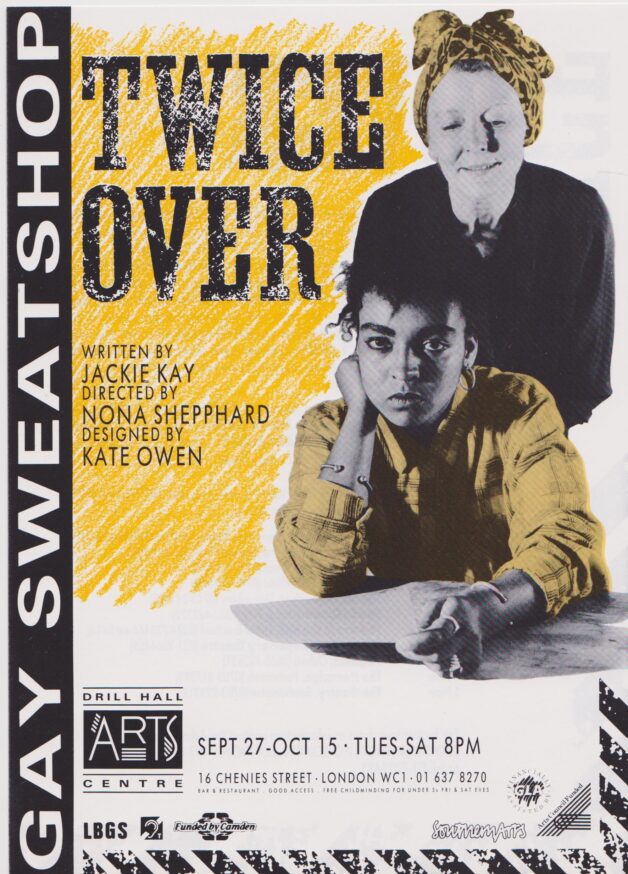
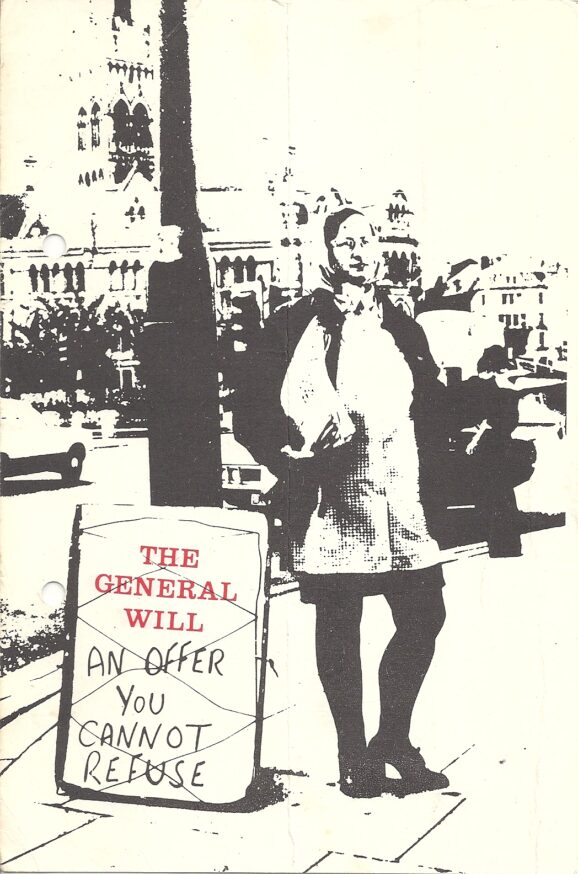
1975 was also a key moment in Bradford where Noel Greig, actor with socialist agit-prop theatre company The General Will, frustrated by the split between his paid work in the company and his off-stage activism with the Gay Liberation Front, staged a ‘zap’, outing himself mid-performance at a pub theatre benefit for International Socialists, declaring he was going on strike as the only gay card-carrying member of Equity, at which multiple members of the GLF, planted in the audience, stood up and rattled collection buckets to support their striking comrade!
Thrown into confusion, the company entered a period of self-examination before emerging with a new constitution, declaring that it would operate as a collective resource, always with a lesbian and gay working-class majority on the board, working with community groups. The following year they staged a festival at Bradford Playhouse, including Les Be Friends, Present your Briefs (on gays and the law) and Me See it Gonna Blow, each devised, performed, and giving voice to a community group: women, gay men, ‘immigrants’. Vitrine 2 includes numerous items collected by company members Dusty Rhodes and Denise Speight from that heady time that underline the community’s understanding of the interconnected nature of cultural and political change: photos of Gays Against Fascism demonstrators, flyers reflecting support for Asian youth in the struggle against racism, while men in the movement, gay and straight were being challenged on their masculinist assumptions.
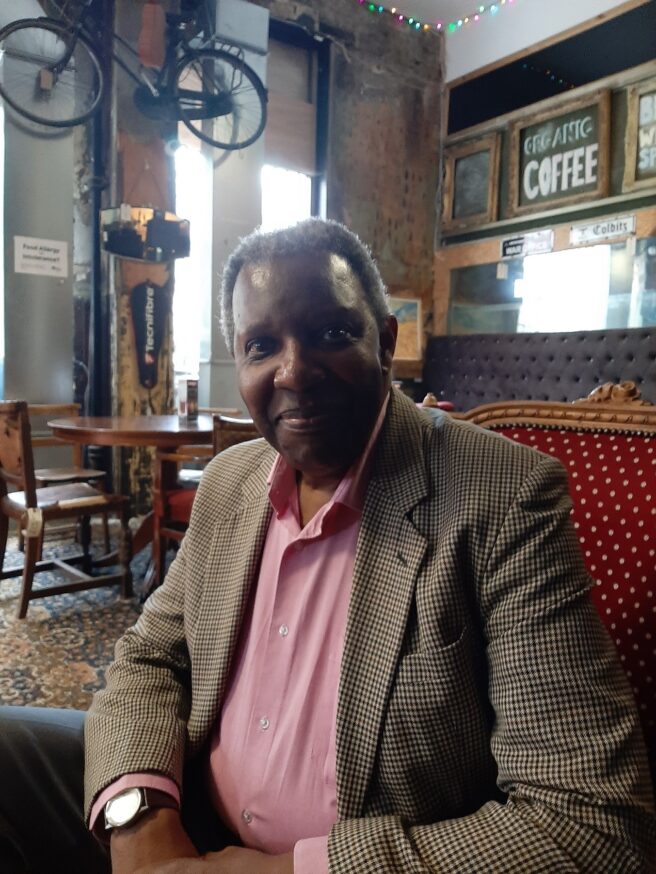
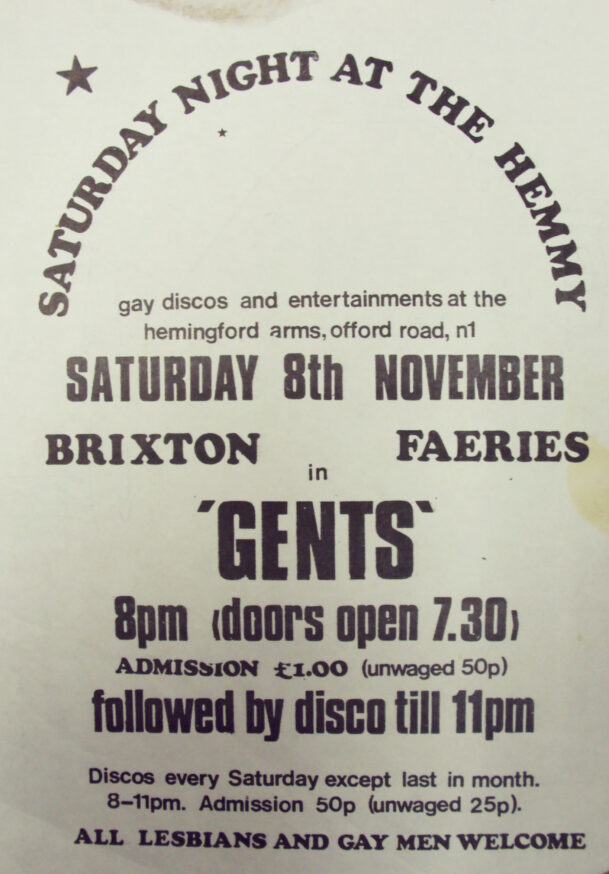
1975 was also the year when Brixton Faeries began, growing out of meetings at the South London Gay Community Centre, at the centre of the Railton Road gay squats, performing outrageous satirical pieces exposing bigotry and prejudice. All these companies would perform at another key venue celebrated by the exhibition, Oval House, encountering each other: lesbian feminists like Siren theatre company and band, Bloolips’s radical drag troupe, Hard Corps’ sapphic camp, along with Black, experimental and feminist work, later including Taylor’s own company Spin/Stir or the first plays by gay Black British writers, such as Martin Patrick’s Where To Now, building a radical community of innovation, debate and activism, the kind of lost community space that Taylor celebrates when she writes: ‘Our meeting places, clubs and bars have closed, and we gather in distinct flocks across social media, each flock speaking a different language. We inhabit separate rooms in the same club…if we were to regain the real-life meeting grounds, if we were to be in the same room, then perhaps we would remember our commonality… In these distinct spaces, we learn to protect one another. We learn that we are one another.’
The exhibition Radical Rediscovery: Homosexual Acts and Beyond is at London Performance Studios from 6th November to 14th December, open 11 till 5 Fri-Sun.
See here for full details, including Symposium and other linked events. For more on the companies detailed above, go to www.unfinishedhistories.com
C+nto and Othered Poems by Joelle Taylor, The Westbourne Press, 2021.
